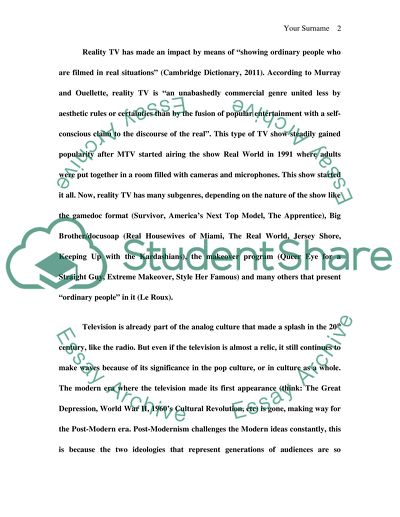Cite this document
(“Reality TV Shows and the American Identity: The Postmodern Situation Essay”, n.d.)
Retrieved from https://studentshare.org/literature/1430231-what-kinds-of-identity-do-reality-tv-shows-create
Retrieved from https://studentshare.org/literature/1430231-what-kinds-of-identity-do-reality-tv-shows-create
(Reality TV Shows and the American Identity: The Postmodern Situation Essay)
https://studentshare.org/literature/1430231-what-kinds-of-identity-do-reality-tv-shows-create.
https://studentshare.org/literature/1430231-what-kinds-of-identity-do-reality-tv-shows-create.
“Reality TV Shows and the American Identity: The Postmodern Situation Essay”, n.d. https://studentshare.org/literature/1430231-what-kinds-of-identity-do-reality-tv-shows-create.


